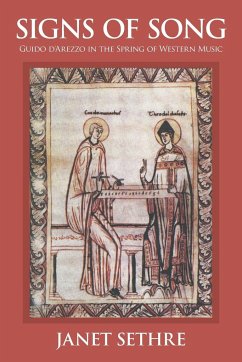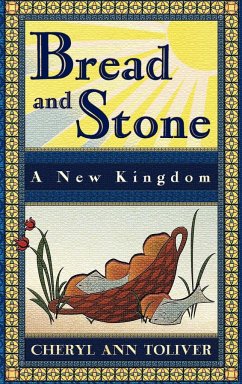Born around 1,000 years ago, most probably in Tuscany, Guido d'Arezzo is remembered as the father of modern musical notation. His musical contributions surpassed all former methods of writing music, which did not represent the exact notes to be sung or played. He developed a linear system of musical notation capable of indicating pitch with absolute precision. His innovations accompanied a cultural crisis fundamental to the growth of Western music. While still a boy, Guido entered the Benedictine monastery at Pomposa, on the Adriatic coast. He probably died in the hermitage of Fonte Avellana in about 1050. This book envisions his life in relation to ancient musical history, to plainchant, and to the glories and conflicts of medieval monasticism. In writing of Guido, the author reveals her love for Italy and her fascination with Gregorian chant and Catholic traditions. She says, "Few documents remain concerning Guido's life. I had to create a framework around his existence, considering ancient musical traditions, plainchant, medieval monasticism, the Italian countryside, and the revolutionary importance of clear notation." About the Author: A native of Seattle, Janet Sethre has lived in Venice for fifty years. She is a retired teacher of English, Italian, French, and Spanish. Her previous works include Venice: Souls' Mother and Child and Elena's Voice: A Jewish Woman in Renaissance Venice. Her translations include Gaetano Paxia's Sancalò: Remembering Sicily.
Hinweis: Dieser Artikel kann nur an eine deutsche Lieferadresse ausgeliefert werden.
Hinweis: Dieser Artikel kann nur an eine deutsche Lieferadresse ausgeliefert werden.








